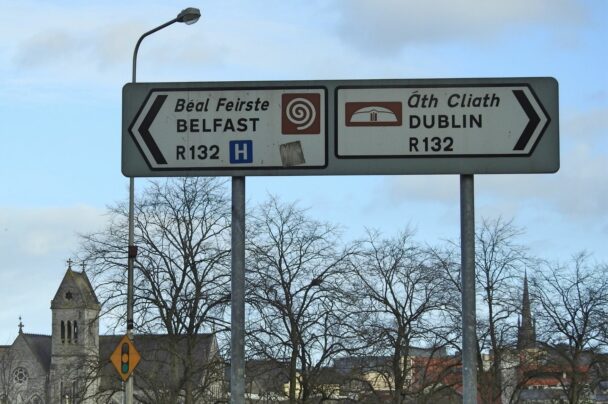Description
In today’s world, where nations often seem divided, it’s crucial to understand why this happens, especially in a globalized context.
Ireland’s unique position as the only EU member sharing a land border with a former EU country, the UK, makes it a fascinating case study.
The course dives into Ireland’s long history of division and explores how Brexit has affected its relationship with the EU. We’ll also discuss separatist movements across Europe and how teachers can approach these topics in the classroom.
We’ll examine the impact of Brexit on both sides of the border and consider the role of social media in shaping public opinion on Brexit and the peace process.
From tracing the conflict’s origins in the Middle Ages to its modern-day implications, participants will gain insights into the complex political and religious tensions between England and Ireland, which have been reignited by Brexit.
Teaching this complex topic can be challenging, particularly in English or history classes across Europe.
The course’s highlight is a full-day trip to Belfast, where participants will experience the differences between the Republic and Northern Ireland firsthand.
Exploring the city will offer a deeper understanding of local life and perspectives. The “Tour of the Murals” will provide insight into both Catholic and Protestant viewpoints.
Important info: You will not pass through any formal immigration control when you enter the UK from Ireland across the land border, so you don’t need any visa documents to enter Northern Ireland on that route.
You may be asked to show your passport (which should be valid for the whole of your stay) to enter Northern Ireland when traveling from Ireland if you are encountered by Border Force. If you are not a citizen of the EU/EEA, please check which documents are required.
Learning outcomes
The course will help participants to:
- Gain a better understanding of the political situation in Ireland, particularly in Belfast (Northern Ireland);
- Recognize the significance of the historical and political background contributing to the negative impact of Brexit on Ireland;
- Develop comprehensive teaching strategies for addressing complex conflicts in Europe within their classrooms;
- Identify the advantages of EU membership and assess the consequences of regions separating from the European Union;
- Communicate the importance of a collective European identity and highlight the significance of programs like Erasmus+.
Tentative schedule
Day 1 – Introduction to the course
- Introduction to the course, the school, and the external week activities;
- Icebreaker activities;
- Presentations of the participants’ schools;
- Teachers’ Expectations;
- The History of Northern Ireland;
- Common European Identity;
- Dublin city walk.
Day 2 – Excursion
- Battle of the Boyne Visitor Centre;
- Oldbridge House, Battle of the Boyne Visitor Centre in Drogheda;
- Inquiry-based learning: How the conflict started;
- Depiction of the Northern Ireland conflict in film: Showing some excerpts;
- Analyzing what we see: what is reality, what is fiction?
Day 3 – Excursion to Belfast
- Tour of the city;
- Explaining the Murals;
- Visiting Shankill Rd <-> Falls Rd;
- City Hall (Queen Victoria);
- Sinn Féin Women’s Prison (Museum);
- Visiting a Catholic and a Protestant neighborhood.
Day 4 – Group work
- Group Work Activity: What we have learned so far;
- Brexit and the consequences for Northern Ireland and our Common European Identity;
- Creating a Presentation of ” Ireland – a Divided Nation”.
Day 5 – Make it happen
- Project presentations.
Day 6 – Course closure and cultural activities
- Course evaluation: round-up of acquired competencies, feedback, and discussion;
- Awarding of the course Certificate of Attendance;
- Excursion and other external cultural activities.


